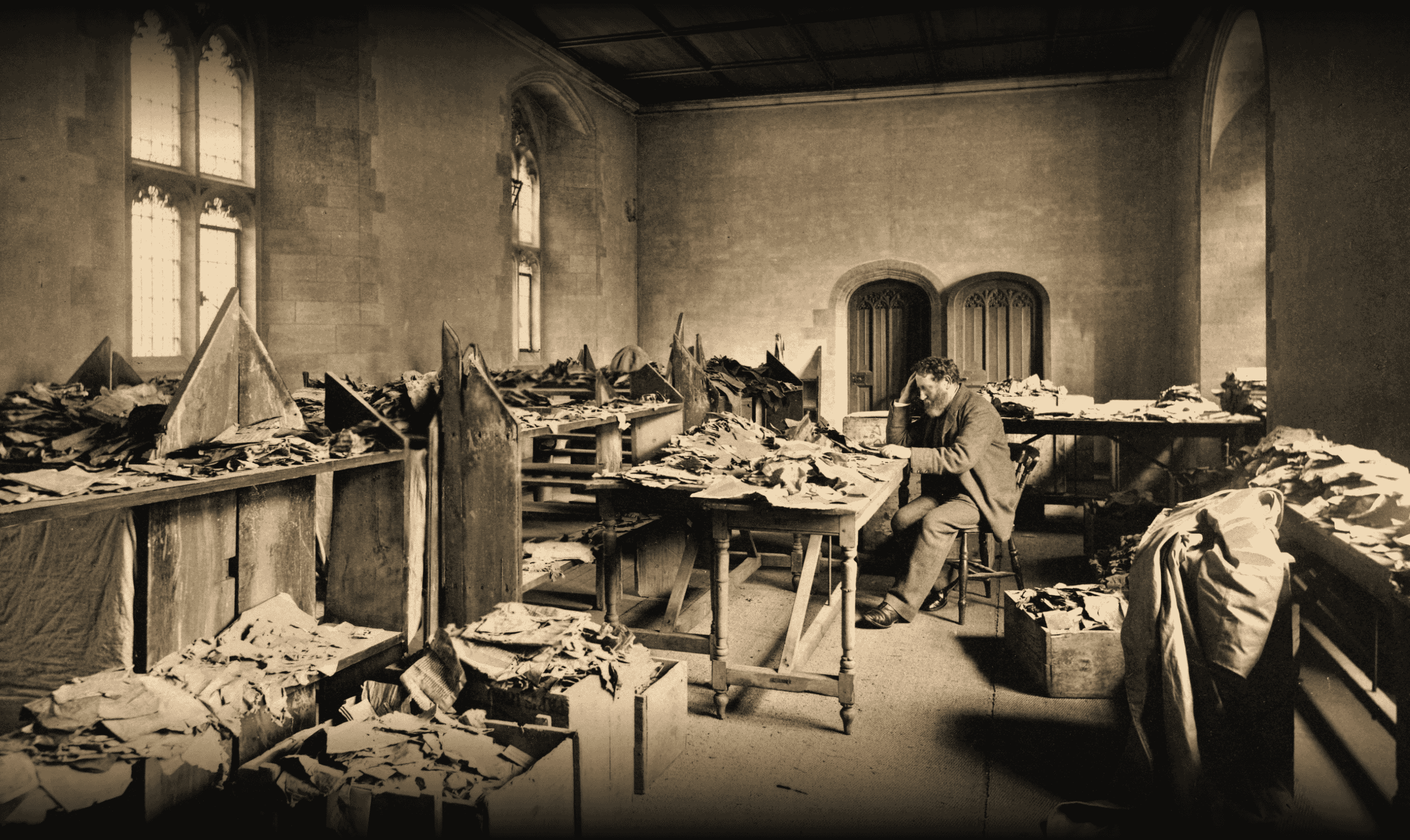Arabic Poetry in the Cairo Genizah
Database of Arabic poetry fragments — with visual presentation, transcription and English translation.
About the work
One of the most important finds in Judaism has been the manuscripts found in the Ben Ezra Synagogue in Cairo, Egypt. Stored in the Genizah, these medieval documents shine a light on the lives of Jews in Cairo, and hold some amazing insights into what they found important. Cairo, being largely an Arabic cosmopolis, had a thriving Jewish community. So, of course, we expect to see cultural exchange take place.
The poetry found in the Genizah, more specifically, gives us a particular insight into this intercultural exchange. Written in Arabic or Judaeo-Arabic—Arabic written in Hebrew script—these hitherto unexplored fragments demonstrate this rich exchange happening in form, themes, wisdom, and reverence for Arabic poetry by the Jews of Cairo.
This project, funded by the European Research Council, explores the presence of Arabic poetry found in the Genizah. We seek to investigate further the importance of Arabic poetry to the social and educational aspects of life for the Jews of Cairo. In doing so, we have aimed to translate these manuscripts into English for the first time, offering the Anglophonic world these poems in their historical context.
The index of poems found on this site are organised by themes, titles, and, when known, author. Have fun exploring as we continue our objective of analysing and translating these texts. More will be added as we make our way through the fragments!
The APCG Podcast is an on-going, Arabic series presented by the lead investigator Mohamed Ahmed.
Throughout the series, Mohamed reads and discuses Arabic poetry found in the Cairo Genizah.
About us
Based largely at Trinity College Dublin in the Near and Middle Eastern Studies Department, and in collaboration with University of Cambridge, we are a team of researchers investigating the Arabic poetry found in the Cairo Genizah. Under the direction of the principal investigator Dr Mohamed Ahmed, our project has three core aims:
• to make the entirety of Arabic and Judaeo-Arabic poetry in the Cairo Genizah accessible to both academic scholars and to the public in a comprehensive database and in critical editions;
• to reveal, through the study of poetry, hitherto hidden aspects of social and cultural history of the Jews in the Middle East with regard to literacy, education and intercommunal relations;
• to explore hierarchies, interpersonal relationships and the social function of poetry in medieval and early modern Egypt through the study of Genizah poetry.
The innovative approach of this project is to investigate Arabic poetry fragments beyond the traditional methodology through a variety of interdisciplinary avenues of investigation, such as philological, linguistic, literary, historical and anthropological perspectives.
The project will be based on the completion of three interrelated research subprojects:
1) A Critical Edition of Arabic poetry in the Taylor-Schechter Genizah collection constitutes the first component of the project. Subproject One’s main aim is to gather, categorise and prepare all the data of Arabic poetry held at the Cairo Genizah and to provide critical editions with translation and apparatus. The editions and the translations will serve as a foundation for addressing all the significant and interesting questions for which the project seeks to find answers. Alongside the linguistic analysis, Subproject One will also pursue a literary comparison between Arabic poetry preserved in the Cairo Genizah fragments and the poetry found in Arabic poetry databases, categorising the fragments according to poetic themes, authors and period.
2) Based on the data gathered from Subproject One, Subproject Two will undertake a cultural and sociohistorical study of Judaeo-Arabic Poetry in the Cairo Genizah. We will lead the inquiry of unexplored fragments that will add new insights to our understanding of Jewish social life in medieval Egypt. Topics like literacy, education, social interactions and the history of Muslim-Jewish relations will be covered by Subproject Two.
3) The APCG will launch An Anthropological study of Genizah Arabic Poetry, exploring the suitability of the sources in examining personal life experiences as well as relationships between Jewish individuals in medieval and Ottoman Egypt. Subproject Three, therefore, approaches the Judaeo-Arabic fragments not only as literary products, but as collections of cultural memory and identity, providing unique insights into everyday life, as well as contemporary perceptions of masculinity, gender, and sexuality.
Events
ALL EventsOctober 20, 2022
Anthologies and Competing Canonizations: ʿImād al-Dīn al-Īṣfahānī (d. 597/1201) and Abū al-Maʿālī al-Ḥaẓīrī (568/1172) w/ Nathaniel Miller
June 19, 2023
Sociohistorical and Cultural Relations in Premodern Mediterranean Societies through Literature and Folklore between the 11th and 17th Centuries
July 15, 2022
History and Anthropology Through Literature: Approaches & Methodologies to the Study of Medieval and Modern Texts and Manuscripts
June 14, 2022
Making Genealogies, Creating Pasts: Shajre-nasb as an alternative archival practice in Kashmir w/ Idrees Kanth
